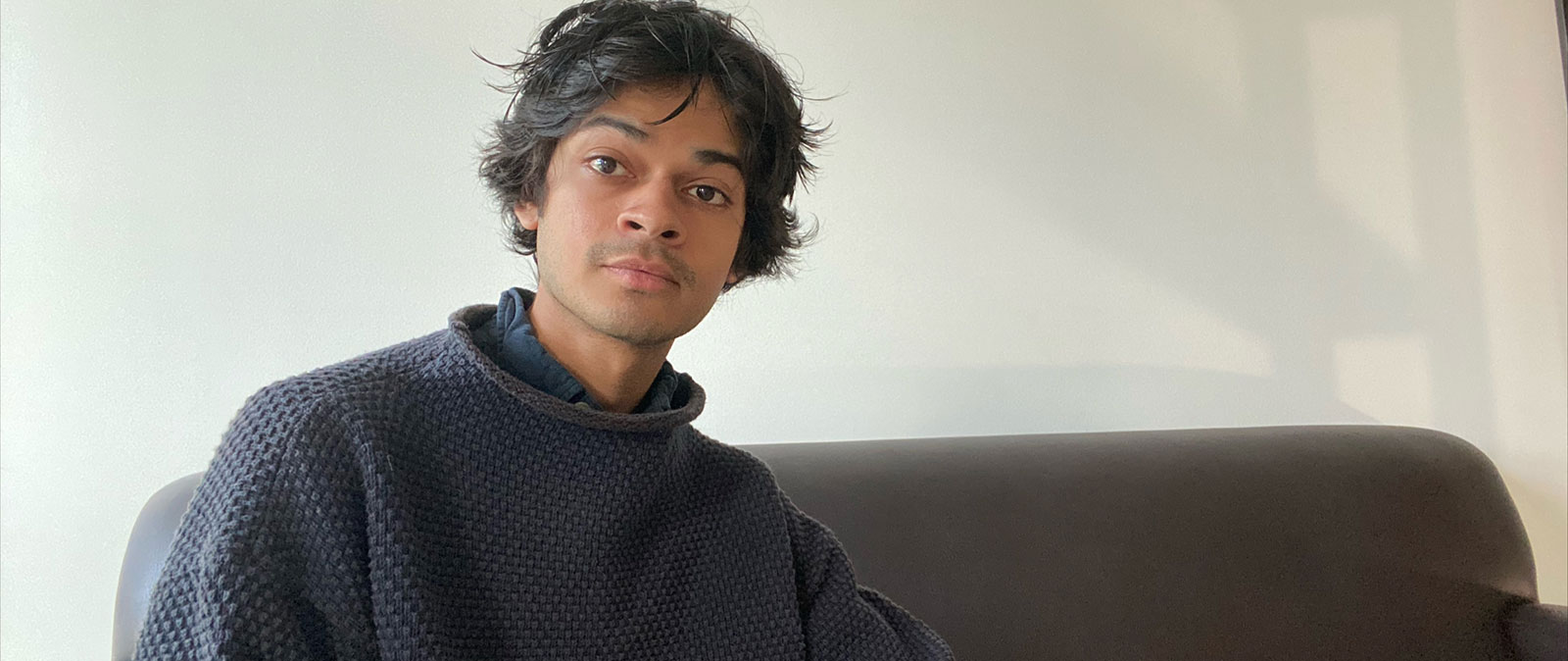Hailing from a science background, FLAME Alumnus Shantanu Tilak experienced an interesting transition toward literary and cultural studies, and following the machinations of human behaviour and consciousness. His journey witnessed the interlinking of structural methods and approaches that iteratively follow human behaviour as a constructive process in various aspects of his career; what can be regarded as the contrast between first and second-order cybernetics, both of which investigate the development of complex systems (organisms, technology). Indeed, Shantanu studied physics, chemistry, and calculus before venturing into liberal arts while planning to pursue architecture. However, as he endeavoured to study for his entrance exams, he understood that standardised examination methods were far from an accurate index of anyone’s abilities. This was when he realised that he was more drawn toward the freedom of exploring the unexplored, attracting him to the liberal arts program at FLAME. It was this transdisciplinary perspective, developed through the study of varied domains in an interlinked manner that planted his interest in cybernetics during graduate school.
As time passed at FLAME, Shantanu grew intrigued by his tightly knit group of friends and how they coexisted in the valley and used it to explore their identities in new ways through cyclical social experimentation and subversive countercultures, inspiring him to understand how minds function in moving social fields. He was truly fascinated at how the FLAME community encouraged individuals to express their inner identities and identify the untapped areas of their consciousness. The backbone offered by nature and the support system of friends that pillared Shantanu's journey accelerated his curiosity about Psychology, and Cultural processes by his second year at FLAME. What further drove him towards testing uncommon and mixed methods was when he studied children with autism using a cut and dry process for a year. It helped him understand the development of the brain and its ability to assimilate information from the social world; individuals can never be separated from their context, and constantly reconstruct themselves as time elapses, developing new reference frames of their realities.
Due to his background in liberal arts, Shantanu was conditioned to connect concepts without hesitation or stay within the confines of theoretical knowledge. Taking up several research projects during his student years at FLAME further deepened his understanding of cybernetics or systems research. "While I never wrote formal manuscripts at FLAME, I was surely trained by my thesis advisor, Maya Dodd, to weave theory and practice together," he said. He also wrote the Discover India Project thesis with his colleagues Karan and Mridula, providing him with the space to understand the creation of unorthodox research documents. These types of documents were often appreciated in peer-reviewed journals for their ingenuity. With his ethnographic research background that stemmed from his Cultural Studies classes and the Discover India Project, he was able to mull over why Psychology was so quantitative.
His experiences in qualitative research at FLAME and quantitative research at the Hinduja Hospital and MRC, Mumbai, eventually led Shatanu to take up Educational Psychology for his Master's at the Ohio State University (OSU). It was here that he was able to formally delve into literature situated within cybernetics, first chancing upon the concept of the double bind in Gregory Bateson’s work, which suggests that one navigates the social world through collective experimentation and tinkering as historical actors with biomechanical and psychosocial components.
Ever since then, he has delved deeper into cybernetics, publishing a host of articles that focus on taking psychology back to its forgotten roots. His advisor, Michael Glassman is a cybernetician at heart, applying systems science to the use of educational technologies and the Internet. Shantanu’s research at OSU works towards designing cybernetic Zones of Proximal Development, and equipping individuals of varied ages (from elementary schoolers to school principals) with the skills to navigate the Internet with a critical eye. This led him to study the work of cybernetician Gordon Pask, which applied the work of Lev Vygotsky to the use of intelligent machines. He has designed curricula for grants funded by the Institute of Education Sciences (The Digital Civic Learning Project headed by Dr. Tzu-Jung Lin), Ohio’s Department of Health (Implementation of a sexual health education curriculum as a virtual too, presided by Dr. Eric Andermanl), and Planned Parenthood.
Recently, having understood the potential of critical thinking through the use of technology as a mediating tool, he has begun collaborating with the advisees of Gordon Pask, Paul Pangaro (Carnegie Mellon University), and Bernard Scott (Institute of Sociocybernetics, Vienna), who created algorithms that make up much of today’s Internet. He aims to understand how to develop intelligent systems that strip current technologies of the veneer of capitalist interests influenced by cognitive science, to achieve the true intent of the Internet, as envisioned by Vannevar Bush, Pask and other cyberneticians of the 70s who were the masterminds behind the Internet.
While Shantanu strives within the gruelling work hours and complex responsibilities, he has found his passion, and ensured that work doesn’t really feel like a mundane task. His deep interest in the ways people learn and grow keeps him committed to the fields of psychology, human-computer interaction, and cultural market formation, to help understand the feedback loops of a complex Information Age.


